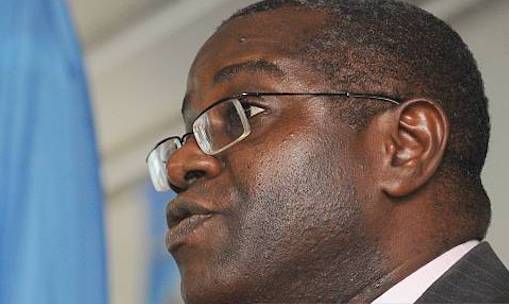A former National Commissioner, Independent National Electoral Commission, Prof. Okechukwu Ibeanu, has said one of the remote causes of electoral violence in Nigeria is the fact that recommendations from various panels were not implemented.
He also identified voter suppression, logistic failure, fake news and hate speech, loss of confidence in the judiciary, impunity and failure to bring culprits to book, and rising expectations from the electorates, among others, as reasons for violence during and after elections.
The ex-INEC National Commissioner stated these at a policy dialogue on “Citizens’ Rights and Impact of Insecurity on the 2023 General Elections” organised by the Electoral Hub with support from the Open Society Initiative for West Africa in Abuja.
The policy roundtable was to proffer solutions to the challenge of pre and post-electoral violence.
The Executive Director, The Electoral Hub, Princess Hamman-Obels, called on Nigerians not to allow themselves to be induced with money by politicians, adding that both the seller and buyer of votes are guilty of elections malpractice.
She urged citizens to promote peace and desist from hate speech, among other vices that would cause violence during the elections.
Hamman-Obels also called for the inclusion of women and people with disabilities, while stressing the need for indebt voter education across the country.
She decried the current spate of insecurity that has led to the destruction of INEC offices, and electoral materials, adding that this would adversely affect INEC’s preparations for the elections.
She equally empathized with Nigerians going through the prevailing economic hardship occasioned by the naira redesign policy of the CBN, and persistent fuel scarcity, as her heart went to mothers who could hardly feed their children.
Ibeanu posited that what could be done in order to tackle electoral violence was the establishment of the Election Administration Agency and a system for holding people accountable for their actions.
According to him, the challenge of electoral violence needed collaborative efforts from all stakeholders, the INEC, security agencies, CSOs and the citizens as well.
He said, “One of the most causes of electoral violence in Nigeria, is the fact that the reports of investigation panels are never implemented. Practically every election in Nigeria has had this shroud of concern about violence around it. And it’s not just the general elections even small by-elections.
“So these have persisted. And as we move to the general election, you can understand why people are concerned that either during the election or in the aftermath, there may be violence, but what exactly is electronic violence and why so and why does it occur?
“Voter suppression and intimidation, especially along ethnic and religious lines could lead to violence. Urban areas with a large concentration of people who are not indigenous to the locality will be most prone to this dimension of electoral violence.
“Logistics failure on the part of INEC has always posed a threat of violence on election day and after. The impression that such failure is for partisan reasons fuels anger among voters and political parties who feel that they are the targets.
“Of a high premium here will be technological hitches. In 2015, the use of a particular telephone network in some parts of the country, which failed to activate the Smart Card Reader, was perceived by voters in those areas as an attempt by INEC to disenfranchise them.
Also speaking, a Senior Research Fellow, the Centre for Democracy and Development, Prof. Adele Jinadu, decried the fact that law and order have not effectively been used to protect the citizens, adding the rising spate of banditry, insurgency and other security challenges are as a result of the failure of the state.
Going into the general elections, Jinadu urged that more should be done to complete the effort of INEC in securing the environment elections are conducted.
“Law and order has not effectively been used to protect the citizen, and that the spate of banditry, insurgency and so on as you see is a failure of the states to provide a security level of security that Nigerians will feel secure.
“This is not something that is new, it has been increasing over the years because people have lost faith in the ability of the state to provide common basic things and security for all that matter.
“I think in looking at the preparation of INEC for the elections, we need to separate what INEC has been doing. And I think since 2011. They’ve been doing their very best to prepare for elections.
“Learning lessons from one election circle to the other. But what has not changed is the environment in which elections are conducted and that is beyond the control of INEC.
“So, my conclusion, therefore, is that yes we should be concerned about if INEC is prepared, but we should be more concerned about what can you and I do to improve the environment within which elections are being conducted because that environment is beyond the control of INEC.”
Share your story or advertise with us: Whatsapp: +2347068606071 Email: info@newspotng.com










